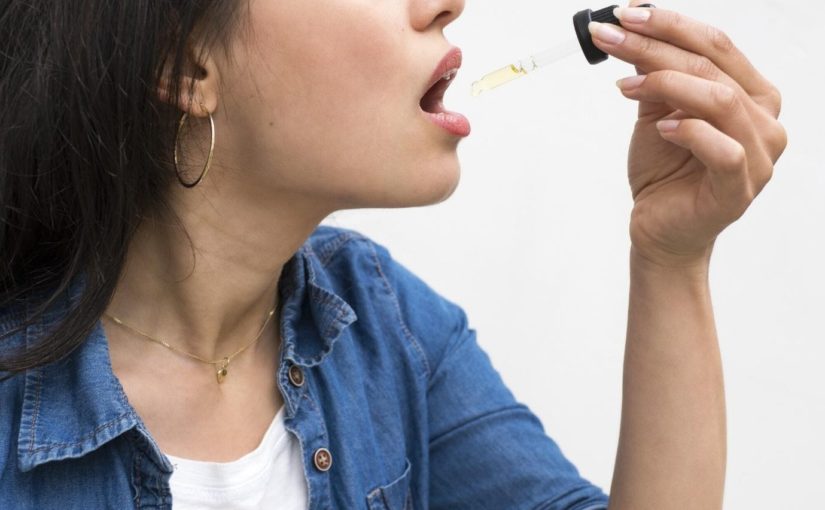The global market size for cannabidiol (CBD) reached an estimated $2.8 billion in 2020. By 2028, that figure will surpass an incredible $13.4 billion.
Demand for CBD products has skyrocketed in recent years, thanks to the growing interest in CBD by researchers, investors, manufacturers, and consumers. Lovers of CBD swear by its vast array of healing properties.
But exactly what is CBD? What are its benefits, and how does it impact the user’s brain? Does CBD have any adverse effects?
If you’re asking yourself these questions, you’ve come to the right place. Read on to learn more.
What Is CBD?
CBD refers to a chemical compound naturally occurring in the hemp plant, which is in the Cannabis family. It is the second most prevalent active ingredient of cannabis after THC.
The main difference between CBD and THC is that CBD does not have any psychoactive effects. In other words, consumers of CBD do not get the high feeling associated with marijuana. CBD products can thus be used safely to treat a variety of ailments without causing intoxicating effects.
The amount of CBD you use and whether you use it with food or not determine how long it stays in your system.
How CBD Works Affects the Brain
The health benefits of CBD are well documented, especially when it comes to the treatment of pain, inflammation from chronic conditions like arthritis, cancer treatment symptoms, and more.
But did you know that CBD has many neurological benefits too? These benefits are related to how CBD impacts the brain:

Mood Regulation
One of the top ways CBD impacts your brain is by enhancing your mood. How does this happen?
CBD triggers the brain’s serotonin receptors to produce the hormone cortisol. This hormone is responsible for regulating your emotions.
By boosting the production of cortisol, CBD helps suppress depression and other psychiatric disorders, boosting your mood in the process.
Memory Boost
One of the top effects of CBD on the user’s brain is the reduction of cognitive decline. CBD has been shown to prevent memory loss and boost cognitive functioning.
CBD prevents the deterioration of parts of the brain affected by Alzheimer’s and other types of dementia. Used as supplementary treatment, CBD also helps prevent brain issues related to inflammation.
CBD and Cannabinoid Receptors
Your body possesses the endocannabinoid system (ECS), which makes cannabinoids naturally. The body also has two specialized receptors known as the CB1 and CB2 receptors.
While CBD doesn’t directly attach to the CB1 and CB2 receptors, it does significantly boost their performance. It impacts CB1 receptors in the brain to boost memory, thinking, mood, and other functions.
CB2 receptors are present in your immune system and regulate pain and inflammation. CBD impacts these receptors by interrupting pain signals, which helps in pain relief.
CBD and Anxiety
Anxiety is more prevalent than you may think, with about 275 million people suffering from the condition worldwide. Sure, there are many drugs for anxiety, but most of them are synthetic and can cause undesired side effects.
CBD has been shown to be effective against anxiety. In fact, it’s the top reason for the recreational use of CBD.
CBD and Trauma
Post-Traumatic Stress Disorder (PTSD) is a common problem in the country, with the vast majority of people experiencing at least one traumatic event during their life. Traumatic events can range from sexual abuse to serving in war zones.
Your brain can try to cope with these events naturally through memory loss or even concentration problems. But victims of trauma may still experience sleep disturbances and other problems. These issues are associated with PTSD.
CBD has proven useful in treating problems associated with PTSD.
CBD and ADHD
People with problems maintaining focus as a result of ADHD and similar conditions can benefit from CBD. Typically, such people have lower dopamine levels than the average person. Dopamine is responsible for motivation, memory, and reward.
CBD boosts the levels of dopamine in the brain, increasing your ability to focus.

Adverse Effects of CBD
One of the top reasons for the popularity of CBD is that CBD products hardly have any negative effects on the user’s body. However, it is important to note that there exist gaps in knowledge about CBD at the moment, and the FDA is yet to approve it as a safe product.
Also, a few users have reported dryness in the mouth, drowsiness, and low blood pressure. The best way to keep yourself safe is to talk to your physician first before starting to use CBD products, especially if you’re already using other medications.
For pregnant or breastfeeding women, it’s wise to avoid using CBD. That’s because CBD products may have other ingredients that could prove harmful to the fetus or infant.
Use of CBD products by people with liver disease is also discouraged unless CBD is taken in lower doses. In people with Parkinson’s disease, CBD use in higher doses can worsen tremors and muscle use.
How to Take CBD
You can take CBD in many ways. A popular way is to take CBD as a tincture, where you put drops of CBD oil under your tongue and hold them for up to a minute. You can also put drops of CBD into your morning cuppa, a smoothie, or juice.
There are also CBD capsules that you can ingest. Some CBD users opt to inhale it using a vape pen. The important thing is to get CBD into your system.
CBD Can Positively Impact Your Brain
CBD is all the rage at the moment, and it’s easy to see why. Products made using the compound are increasingly proving effective when it comes to safely treating a wide range of conditions, many of which affect the brain.
Would you like to learn more about CBD’s efficacy? Please keep visiting our blog for our featured articles.
